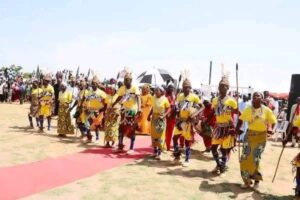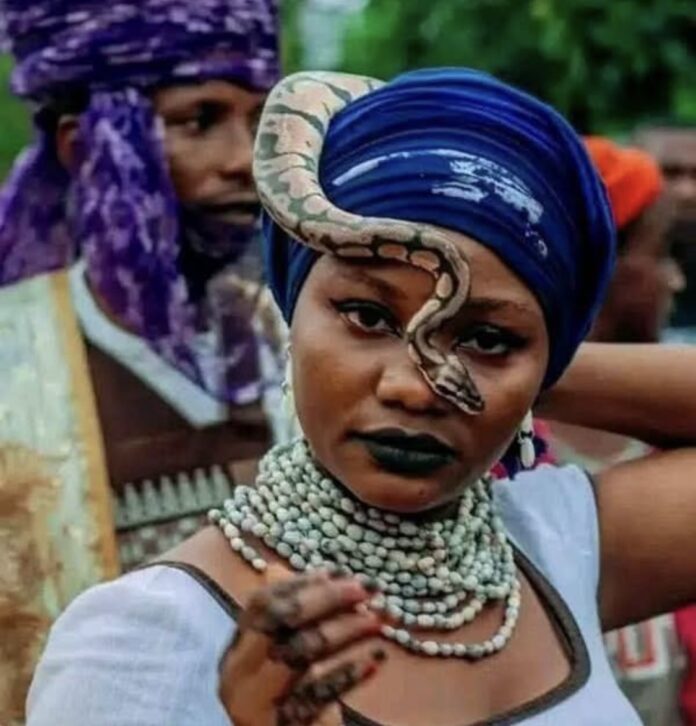Unveiling the Tangale Tribe: A fascinating glimpse into culture, and heritage
The Tangales are a lively people with a long name-story, bold dances, and hands that turn soil and clay into life. As Gombe’s proud storytellers, it is widely known that their stories arrive with drumbeats and woven beads.
Origin and History
The Tangale people trace their name to a leader called Tangal, who ruled parts of what is now Billiri and nearby areas. Their history mixes migration stories and local memory.
Historians and elders say the group moved into the present region centuries ago and formed chiefdoms around hill towns such as Billiri and Kaltungo.
One widely told tradition traces a long migration from the Middle East, often said to be Yemen, via Egypt and into the Lake Chad region, before settling in today’s Gombe South.

Today, Tangale communities mostly reside in Billiri and Kaltungo, with a handful scattered around parts of Akko, Shongom, and Balanga in Gombe State.
READ ALSO: The Kilba/Hoba People of Adamawa: Custodians of remarkable culture, history (pictures)
Tangale Traditions and Spirituality
Traditional religion used to be dominant, and many Tangale customs are shaped by old rites and symbols. One famous totem is the snake, which appears in stories and local beliefs.
Tangale spirituality used to revolve around a Supreme Being and a pantheon of spirit figures tied to life’s big questions on creation, death, health, and justice.
Over time, most Tangale people have adopted Christianity or Islam, but even with new faiths many families still keep cultural rites, seasonal festivals and respect for elders and lineage. Community leaders and traditional rulers remain important in local life.

READ ALSO: The Jukun Tribe: Into the enduring traditions of the mighty Kwararafa Kingdom (Pictures)
Dance and Cultural Attire
These people show off their culture with colour and rhythm. Local festivals such as “Pissi Tangale” and the Kaltungo cultural celebrations bring drumming, songs and energetic dances, each movement telling a bit of their history and bravery.
Tangale traditional outfits involve some patterned wrappers, some beadwork and pieces made from cloth woven locally.
Their women show identity and status through caps, carefully arranged beads and calabashes in public festivities and ceremonies. Youth groups and dance troupes keep the moves alive at town events and nowadays on social media.
Kaltungo hosts its own specific carnival calendar, where participants move through the streets in layered fabrics, beadwork, cowries, and face paint.
READ ALSO: Guardians of Heritage: Glance at Bolawa tribe of Fika (Video)
Economy and Craft
The Tangale people are mostly farmers. Maize, sorghum, cowpeas, groundnuts and other staples are very common in Billiri and Kaltungo. Many households mix crop farming with small trading.
Harvests anchor family life, grains and legumes in the fields, and sesame as a star crop with cultural significance. Sesame seeds are so valued that they’re a must-bring gift in marriage rites.

Craft-making is also important. At festivals, you’ll find beadwork, pottery, weaving, woodcarving and leatherwork made by local artisans. These crafts are practical, used in homes, and also sold at markets and cultural fairs, a tidy example of culture meeting commerce.
READ ALSO: The agrarian spirit and vibrant cultural identity of the Kambari people
Modernisation
Local projects and heritage groups are working to document and preserve these traditions for younger generations. They keep their story moving, from Tangal’s origins to the modern festival stages.
The Tangale of Gombe State are a reminder that culture is both living memory and everyday work, performed in the fields, stitched into clothing, and drummed out at festivals.
Follow the Neptune Prime channel on WhatsApp:
Do you have breaking news, interview request, opinion, suggestion, or want your event covered? Email us at neptuneprime2233@gmail.com





